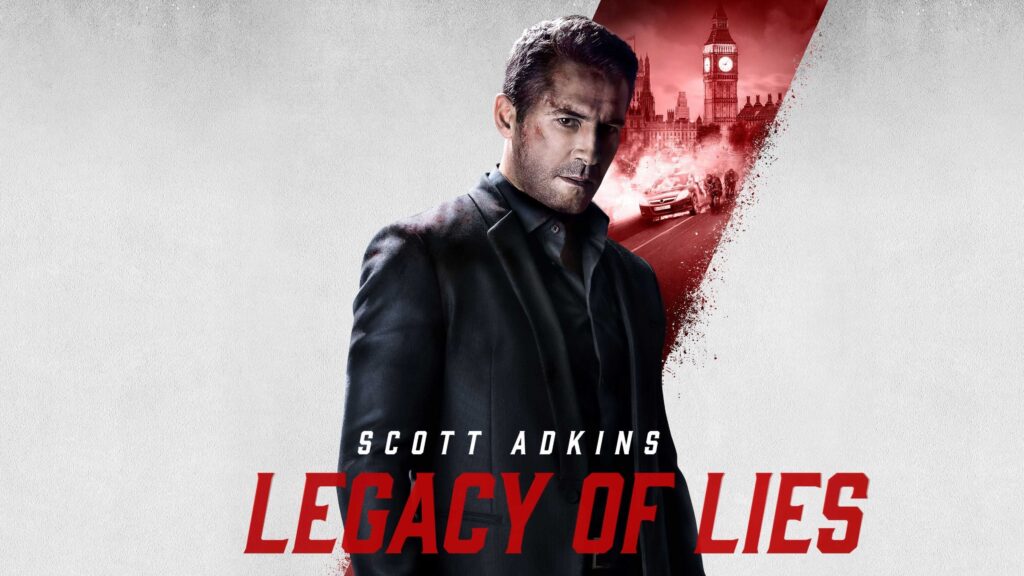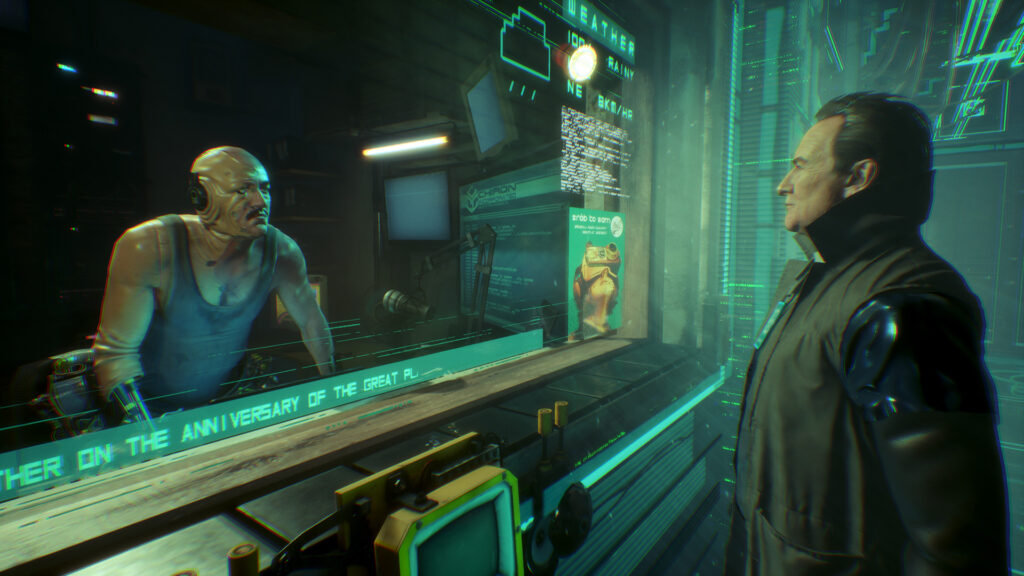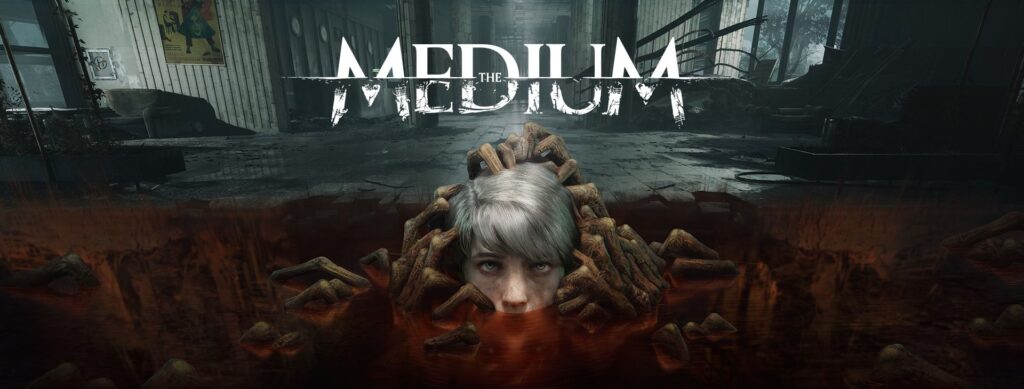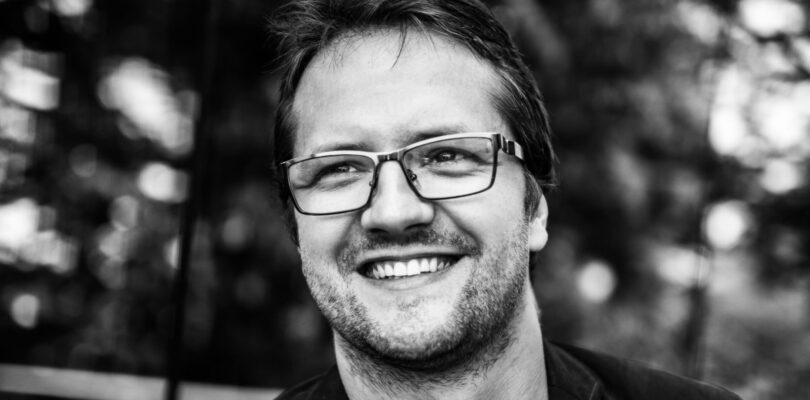This is the English language version of an interview initially conducted in Polish by Piotr Sikorski.
A few weeks ago we’ve published our long talk with Piotr Musiał. It was greeted very warmly and thus we decided to keep fueling the fire. Today we welcome you to our interview with Polish game music composer Arkadiusz Reikowski. Once again it turned out we can’t ask just a few questions… We present part one. Enjoy!
Arek, thank you so much for talking to me. Let’s start with something different. Imagine you’re at a party organized by us. A lot of folks around, while the host – me – asks you to say a few words about yourself. What do you say?
Nothing too complicated, I don’t really like talking about myself. But since I should at least introduce myself, I say: „Hi! I’m Arek and I professionally create music for films and games, largely those that carry a deeper meaning. I like to pour emotions into what I do.”
Oh yeah, you can feel those emotions in your work. Your SoundCloud profile features this quote: „Composing music is like creating shapes. By changing the view, one influences how we perceive things”. Is it yours? I’m very curious how you interpret it ?
Yes, it’s my quote. It’s all about how music can affect how we perceive what’s on the screen, or what we participate in as players. Music is pure emotion, something which should subtly pushes into a particular atmosphere. This is my job – creating an appropriate angle for a scene, sonically, tonally.
Interesting. Your compositions make it clear you walk this particular path. An overwhelming part of your portfolio consists of game projects. How so?
It kind of started from the fact that I was always pulled into films, games, anime. I’ve been playing games since forever and I decided fairly early that I’ll be working in the industry, even if I’ll have to sneak in through a window. And here I am.

I’m attracted to unconventional projects which are emotionally charged. But I’m also looking for a way to express myself in movies. Recently, my first film premiered in the US – Legacy of Lies. It’s something I would definitely want more to do with. Painting music for a linear work is something I enjoy very much. And I have to mention my inspirations – the late Jóhann Jóhannsson was primarily a film composer.
Jóhann Jóhannsson? It so happens he’s one of my favorites as well and his score to „Prisoners” is one of those I return to the most. Happy to hear you’re beginning to work in film as well. Still, tell me how it happened that you became a game composer? What was your journey until this moment?
It really began with two works. First, there was an anime – Ghost in the Shell. Kenji Kawai’s music made a massive impact on me. It was something else, something unique. I had chills every time I listened to it, and since it wasn’t easy to get a soundtrack like that back then, I recorded the music myself by putting a tape recorder to the TV. The second one was a game – Silent Hill 2 from Akira Yamaoka. Similarly unconventional and I speak of both the game and the music. I knew I wanted to create things like these. Back then in Poland it wasn’t very easy, though. We gathered in teams on internet forums and we worked from home on projects which largely never went anywhere, but a lot of the folks I’ve worked with then are now in the industry.
Listening to your compositions, especially the more recent ones, one can’t help but think that you feel quite well in dark, mysterious vibes straight from Silent Hill. Where does one look for inspiration for such sounds?
My inspirations are always connected with the project I work on. If I don’t feel anything, then we’ve got a problem and it usually means that I’m just not the guy for this soundtrack. I’ve always liked things that aren’t easy listens. I’ve always been attracted to instrumental music, I liked collecting films soundtracks and since I’ve been a fan of those darker ones since forever – thrillers, horrors – it kind of happened. Maybe it’s also the fact that this genre gives a lot of space for the emotional resonance of what I’m doing. I’ve always liked darker colors, uncertainty, but also lyricism in music.
Since we’re talking about dark, heavy colors, I can’t not ask about Observer. I’m very, very impressed with your work for it. Can you unveil some trivia from a composer’s backstage? What was the biggest challenge? And… did you meet Rutger Hauer?
I’m very pleased with that! The biggest challenge was to make something that didn’t sound like anything else. And if that’s impossible, then to create something which pays homage to Vangelis without being entirely obvious. Thus my idea to bring the band Księżyc into the mix. But how to combine „dark” ethnic-folk music with cyberpunk? Turns out it worked very well.

I was terrified of the recording, but once I heard Kasia and Agata’s voices I stopped having any doubts. The game’s themes also allowed for some wild musical experiments. And yeah, I’ve met Rutger Hauer. Initially it was paralyzing, we spoke of the new Blade Runner and then during recording he wanted to listen to the finished music. An incredible experience. I remember he fell into deep thought for a while and said it’s „very poetic”.
Wow! Chills. Fantastic story. Definitely an unforgettable experience, once you wouldn’t have if not for your work with Bloober Team. How is it to be an almost „exclusive” composer? I’m asking since it feels like your cooperation is continuing uninterrupted.
I’m not an exclusive composer, I work on other projects as well, including film ones. But I do work with Bloober Team for a couple of solid years and it’s definitely a work relationship built on mutual trust. It’s a great team and one of the best studios I’ve ever worked with. It’s made up of very talented people and it worked hard for a long time to earn its position. I also have the pleasure to be their sound director. After so many years we get each other well enough to know exactly what we need to achieve the desired effect. Not going to lie – my style of writing music fits very well with what Bloober’s doing.

Let’s move on to your current engagement. Once again with Bloober Team, once again with decidedly nerve-wracking themes. It could be said that even the place is going to be similar – an alternative Kraków. Please describe The Medium through the eyes (or ears?) of its composer. How it will differ from Observer’s atmosphere? Are you cooking something special for us this time?
The theme is quite interesting due to the existence of two worlds – the real and spiritual. We also got Kraków 20 years into the past, which allows a different sort of approach to music. I use a lot of synthesizers and analog sounds. Not entirely retro, but we have some cool programmed sequences. Observer was very cyberpunk. This is more Stranger Things or Chernobyl as for my part of the soundtrack.
According to its teasers, The Medium is supposed to be a unique and groundbreaking game on a worldwide scale, allowing one player to play simultaneously on two screens. Sounds quite intriguing. How did this concept influence making the soundtrack?
Firstly – there’s two of us. Me and Akira Yamaoka. I wanted the spirit world to have its own unique music style and for this asking Akira for help was the perfect move. After all, he made the incredible music for Silent Hill, which is one of my favorite games of all time. This combo of two styles, two worlds might be very interesting to players. The music hides a lot of cool things, but not just the music. Just as important a challenge was creating the proper Sound Design, but for that we have a fantastic sound team. The results are going to be very intriguing.
For part 2, click here!


